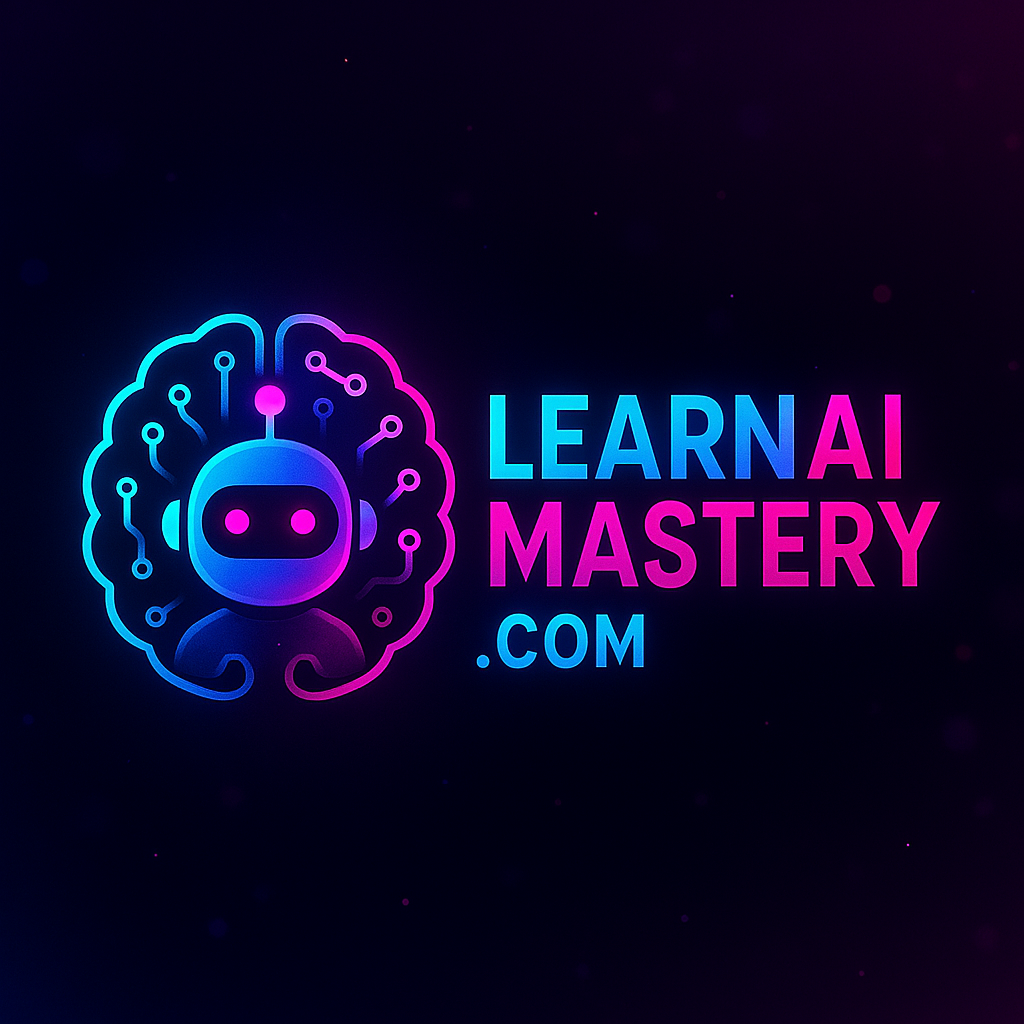Data science stands at the intersection of statistics, computer science, and domain expertise, acting as a multidisciplinary field that extracts knowledge and insights from structured and unstructured data. Its core components typically include data collection, cleaning, analysis, modeling, interpretation, and visualization [Source: IBM – What is Data Science?]. The goal is to transform raw data into actionable intelligence, enabling organizations to make informed decisions and discover hidden patterns.
The importance of data science permeates nearly every industry today. From healthcare utilizing predictive analytics for disease outbreaks to retail personalizing customer experiences, and finance detecting fraudulent activities, data science drives innovation and efficiency [Source: Towards Data Science – Why Data Science Matters]. It empowers businesses to understand their customers better, optimize operations, and gain a competitive edge in a data-rich world.
A typical day for a data scientist can vary widely but often involves a mix of tasks, including data cleaning and preparation, exploratory data analysis, building and refining predictive models, and communicating findings to stakeholders. Roles often include Data Scientist, Machine Learning Engineer, Data Analyst, or Business Intelligence Analyst, each with a distinct focus but overlapping skill sets [Source: Harvard Business Review – The Sexiest Job of the 21st Century].
It’s crucial to distinguish data science from related fields. While data analytics focuses on historical data to understand “what happened,” and machine learning engineers concentrate on building and deploying self-learning models, data science encompasses a broader scope, including problem definition, data acquisition, advanced statistical modeling, and strategic insights [Source: Northeastern University – Data Science vs. Data Analytics vs. Machine Learning].
The future of data science is dynamic, marked by emerging trends and technologies. Advances in artificial intelligence, deep learning, explainable AI (XAI), and big data processing capabilities continue to shape the field. The increasing adoption of cloud computing and specialized data science platforms further streamlines workflows, making data science an ever-evolving and indispensable domain [Source: Forbes – The Future Of Data Science In 2025].
The Foundational Toolkit: Essential Skills for Aspiring Data Scientists
Mastering programming languages is fundamental for any aspiring data scientist. Python and R are the two most prominent languages, each offering unique strengths. Python, with its extensive libraries like Pandas, NumPy, Scikit-learn, and TensorFlow, is favored for its versatility in data manipulation, machine learning, and deployment, making it a general-purpose choice. R, on the other hand, is highly valued for its robust statistical computing and graphical capabilities, especially within academic and research settings [Source: LearnAImastery – Python vs. R for Data Science]. Understanding the nuances of both can significantly broaden a data scientist’s toolkit.
Statistical analysis forms the bedrock of data insights. A strong grasp of statistical concepts, including hypothesis testing, regression analysis (linear, logistic), and understanding probability distributions, is essential. These skills enable data scientists to rigorously test assumptions, quantify relationships between variables, and make inferences about populations from sample data, providing a scientific basis for their conclusions [Source: Coursera – Introduction to Statistics]. Practical examples often involve A/B testing, forecasting, or risk assessment.
Machine learning techniques are at the core of predictive analytics and pattern recognition. Aspiring data scientists must be familiar with both supervised learning (e.g., decision trees, support vector machines, regression) for predictive tasks and unsupervised learning (e.g., clustering, dimensionality reduction) for discovering hidden structures in data. Understanding model evaluation metrics like accuracy, precision, recall, and F1-score is crucial for assessing model performance and selecting the most appropriate algorithm for a given problem [Source: LearnAImastery – Understanding Core Machine Learning Algorithms].
Data visualization for effective communication transforms complex data into understandable and compelling narratives. Knowing how to create informative and aesthetically pleasing visualizations is vital for communicating insights to non-technical stakeholders. Tools and libraries like Matplotlib, Seaborn, Plotly, and Tableau are essential for designing charts, graphs, and dashboards that highlight key findings and support data-driven decision-making [Source: DataCamp – Essential Data Visualization Techniques]. Best practices include choosing the right chart type, ensuring clarity, and avoiding misleading representations.
Beyond technical prowess, essential soft skills are paramount for data scientists. Critical thinking and problem-solving enable professionals to break down complex challenges and devise innovative solutions. Effective communication, both written and verbal, is crucial for translating technical findings into actionable business insights for diverse audiences. Teamwork and collaboration are also vital, as data science projects are often interdisciplinary endeavors requiring coordination with engineers, business analysts, and domain experts [Source: LearnAImastery – The Importance of Soft Skills in Data Science].
Educational Pathways: Degrees, Bootcamps, and Self-Learning in Data Science
Choosing your path into data science involves considering traditional degrees, intensive bootcamps, and self-learning. Each pathway offers distinct advantages and disadvantages, catering to different learning styles, time commitments, and career goals [Source: University of California, Berkeley – Data Science Education Pathways]. Making the right choice hinges on a careful assessment of personal circumstances and aspirations.
Traditional degree programs, such as Bachelor’s or Master’s degrees in Data Science, Statistics, Computer Science, or related fields, offer a comprehensive and theoretical foundation. These programs typically span several years and provide in-depth knowledge of mathematics, statistics, programming, and advanced algorithms. They are often preferred for roles in research, academia, or companies that value a strong theoretical background [Source: Stanford University – Master of Science in Statistics (Data Science)]. While they require a significant time and financial investment, they can open doors to a wider range of opportunities.
Bootcamps provide intensive, skill-focused training designed to equip students with practical, industry-relevant data science skills in a shorter timeframe, typically a few months. They emphasize hands-on projects, collaborative learning, and career services, making them ideal for career changers or those looking to quickly upskill. Bootcamps often focus on the most in-demand tools and techniques, preparing graduates for entry-level data scientist roles [Source: LearnAImastery – The Benefits of Data Science Bootcamps]. While intense, their accelerated nature can lead to quicker entry into the workforce.
Self-learning offers unparalleled flexibility and cost-effectiveness. With a wealth of online resources—including MOOCs (Massive Open Online Courses), tutorials, blogs, and open-source projects—individuals can curate their own learning journey. This path requires significant self-discipline, motivation, and the ability to identify credible resources. It’s often supplemented by contributing to open-source projects, participating in online communities, and building a strong portfolio of personal projects to demonstrate practical skills [Source: KDnuggets – How to Become a Data Scientist (Self-Taught)].
Assessing your learning style and goals is critical in making the right educational choice. Do you thrive in structured environments, or are you a self-starter? Do you prefer a deep theoretical understanding or hands-on practical skills? Are you looking for a quick career transition or a long-term academic foundation? Answering these questions will help align your learning journey with your career aspirations, ensuring you make the most effective choice for your entry into the data science field [Source: LearnAImastery – Choosing Your Data Science Learning Path].
Building Your Portfolio: Practical Experience and Projects in Data Science
The importance of practical experience cannot be overstated in data science. While theoretical knowledge is essential, employers primarily seek candidates who can apply their skills to solve real-world problems. Practical experience demonstrates competence, problem-solving abilities, and familiarity with the entire data science pipeline, from data cleaning to model deployment and communication of results [Source: Analytics Vidhya – Why Practical Experience Matters in Data Science].
Showcasing your skills through projects is the most effective way to demonstrate your capabilities. A well-curated portfolio acts as a visual resume, allowing potential employers to see your technical skills in action. Projects can range from analyzing public datasets to building predictive models or creating interactive dashboards. The key is to highlight your thought process, the challenges you faced, and the insights you derived [Source: Towards Data Science – Building a Standout Data Science Portfolio].
Leveraging internships for real-world experience provides invaluable exposure to industry practices, team dynamics, and specific business challenges. Internships offer a structured environment to apply academic knowledge, learn from experienced professionals, and build a professional network. Many companies use internships as a primary pipeline for full-time hires, making them an excellent stepping stone into the data science career [Source: LearnAImastery – Securing Your First Data Science Internship].
Participating in Kaggle competitions is another excellent way to gain practical experience and showcase your skills. Kaggle provides diverse datasets and challenging problems, allowing participants to test their modeling abilities against a global community of data scientists. Success in Kaggle competitions demonstrates strong technical skills, problem-solving aptitude, and the ability to work with real-world, often messy, data [Source: Kaggle – About Kaggle Competitions]. Even participating without winning can provide valuable learning and networking opportunities.
Personal projects are critical for building your data science expertise. These projects allow you to explore topics of personal interest, experiment with new techniques, and showcase creativity. Whether it’s analyzing social media data, building a recommendation system for movies, or predicting stock prices, personal projects demonstrate initiative, independent learning, and a genuine passion for it. Documenting your code and methodology on platforms like GitHub is highly recommended.
Finally, portfolio presentation is crucial for showcasing your best work. Your portfolio should be easily accessible (e.g., via a personal website or a well-organized GitHub repository) and clearly articulate the problem, your approach, the tools used, and the insights gained for each project. Including a brief executive summary and compelling visualizations can significantly enhance the impact of your portfolio and make it stand out to recruiters [Source: LearnAImastery – Effective Data Science Portfolio Presentation].
Launching Your Career: Job Search Strategies and Continuous Growth
Crafting a winning data science resume and portfolio is your first step toward securing a job. Your resume should be concise, highlighting relevant technical skills, projects, and quantifiable achievements. Tailor it to each job description, emphasizing keywords. Your portfolio, as discussed in the previous chapter, should complement your resume by providing tangible proof of your abilities, showcasing your strongest projects with clear explanations and code [Source: LearnAImastery – Creating an Impactful Data Science Resume].
Acing the data science interview requires preparation for both technical and behavioral questions. Technical interviews often involve coding challenges (e.g., Python, SQL), statistical concepts, machine learning algorithms, and case studies. Behavioral questions assess your problem-solving approach, teamwork skills, and ability to handle challenges. Practice mock interviews and brush up on fundamental concepts to boost your confidence [Source: InterviewBit – Data Science Interview Questions].
Networking strategies are vital for building connections in the data science community. Attend industry conferences, meetups, and webinars. Join online forums and professional groups on platforms like LinkedIn. Networking can lead to mentorship opportunities, job referrals, and insights into industry trends. Personal connections often open doors that traditional job applications might not [Source: Forbes – Why Networking Is Crucial For Your Career].
Staying ahead of the curve means keeping up with industry trends and technologies. Data science is a rapidly evolving field, with new tools, algorithms, and methodologies emerging constantly. Subscribe to leading data science blogs, follow influential researchers and practitioners on social media, and read academic papers to stay informed about the latest advancements [Source: Towards Data Science – How to Stay Up-to-Date in Data Science].
Continuous learning is not just a strategy but a necessity in data science. Embracing lifelong education ensures your skills remain relevant and competitive. This can involve taking advanced online courses, earning specialized certifications, contributing to open-source projects, or even pursuing further academic degrees. The commitment to ongoing learning will define your long-term success and adaptability in this dynamic field [Source: LearnAImastery – The Importance of Lifelong Learning in Data Science].
Sources
- Analytics Vidhya – Why Practical Experience Matters in Data Science
- Coursera – Introduction to Statistics
- DataCamp – Essential Data Visualization Techniques
- Forbes – The Future Of Data Science In 2025
- Forbes – Why Networking Is Crucial For Your Career
- Harvard Business Review – The Sexiest Job of the 21st Century
- IBM – What is Data Science?
- InterviewBit – Data Science Interview Questions
- Kaggle – About Kaggle Competitions
- KDnuggets – How to Become a Data Scientist (Self-Taught)
- LearnAImastery – Choosing Your Data Science Learning Path
- LearnAImastery – Creating an Impactful Data Science Resume
- LearnAImastery – Effective Data Science Portfolio Presentation
- LearnAImastery – Python vs. R for Data Science
- LearnAImastery – Securing Your First Data Science Internship
- LearnAImastery – The Benefits of Data Science Bootcamps
- LearnAImastery – The Importance of Lifelong Learning in Data Science
- LearnAImastery – The Importance of Soft Skills in Data Science
- LearnAImastery – Understanding Core Machine Learning Algorithms
- Medium – Ideas for Your First Data Science Project
- Northeastern University – Data Science vs. Data Analytics vs. Machine Learning
- Stanford University – Master of Science in Statistics (Data Science)
- Towards Data Science – Building a Standout Data Science Portfolio
- Towards Data Science – How to Stay Up-to-Date in Data Science
- Towards Data Science – Why Data Science Matters
- University of California, Berkeley – Data Science Education Pathways





